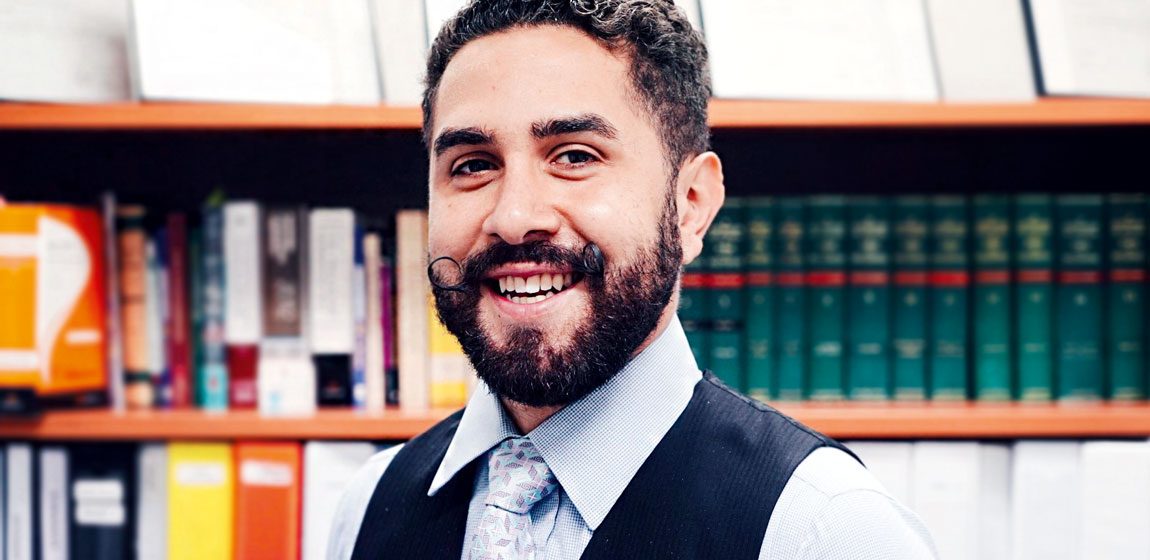Jahan Kalantar trades on compassion. It is a theme he returns to in conversation and is the ethos he says led him to establish his law firm, Executive Law Group, with a friend from law school.
At just 30, he has a whole other career in financial services under his belt and enjoyed a three-year stint at the NSW Bar reading under former Supreme Court Justice Greg James QC. For the past year, Kalantar has been teaching evening classes for the Top Education Institute’s Sydney City School of Law.
How has this legal wunderkind done so much in such little time? Kalantar puts it down to a combination of nerdiness and being intensively driven in his pursuit of self-improvement. He also confesses to working long hours and says none of it would be possible without the help and support of a loving partner. Does he consider himself successful? No, he says, because the person he was yesterday is his greatest competitor.
Sporting a seriously styled moustache and a three-piece suit, Kalantar claims to have taken his sartorial cue from the man on the cylindrical Pringles potato chip packet. Or, maybe he was inspired by the iconic face of Monopoly, Rich Uncle Pennybags.
Whatever the case, he isn’t sure he would know who he was if he shaved it off. Maintaining the silly facial hair is just a way for people, clients especially, to feel they can relate to him on the same level, says Kalantar.
This year, Kalantar took to the stage to discuss the art of the perfect apology for TEDxSydney.
Drawing on his experience representing clients in criminal matters or before the NSW Mental Health Review Tribunal, the self-titled “little guy lawyer” shared his formula for how to say “sorry” like you mean it. Kalantar came up with the idea over a lunch conversation with friends and presented it to the organisers of TEDx.
He says he would often ponder the psychology of remorse and what the difference was between what the court considered to be a genuine apology from one that was not.
“I have always been a huge TED nerd. I try to watch one per day but, realistically, with all the time commitments, I watch two to three a week at least. I made a very short video, sent it in to the TEDxSydney people, and then I was invited to do a three-minute pitch on the art of saying sorry. From there I was teamed up with a curator and we began the process of developing it. That is how we came up with the concept of developing a framework for saying sorry. The framework was my own thing that I’ve seen work, but formalising it was 100 per cent the TEDxSydney team. That’s the protocol that got me to that stage.




